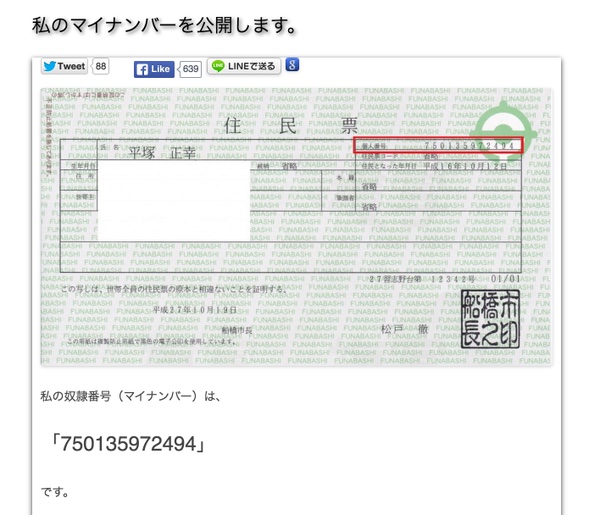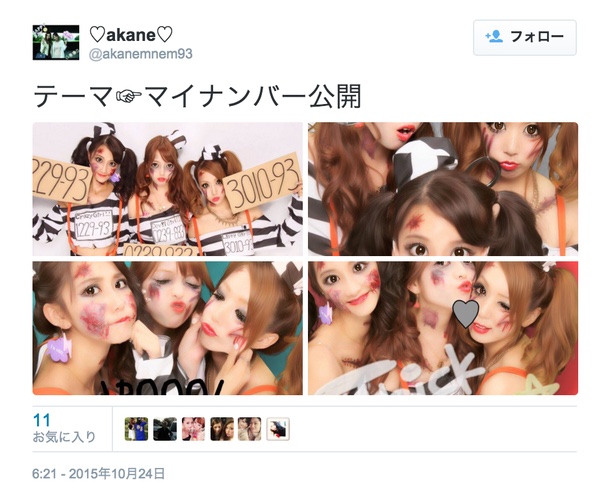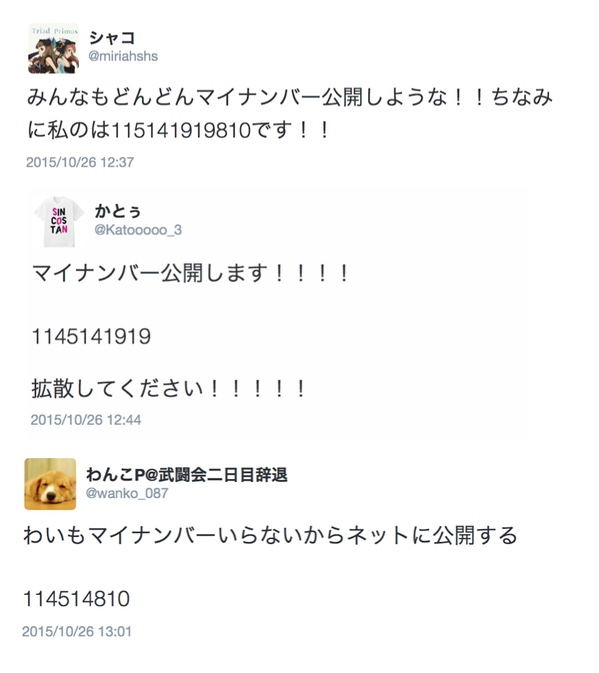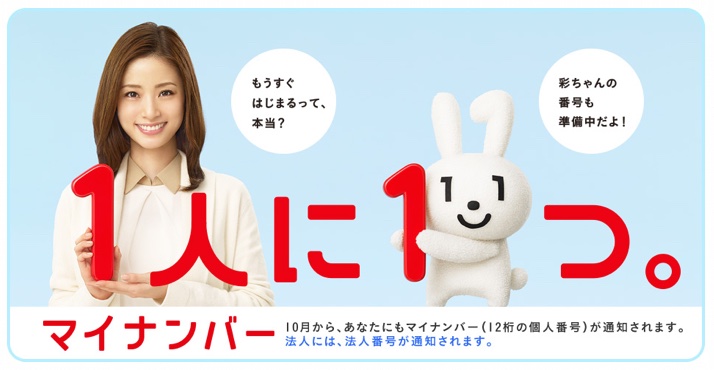Japanese citizens are responding to the introduction of the controversial My Number system by publishing their personal codes.
People have turned to blogs and social media to willingly disclose their “slave number” in order to publicize their belief that the My Number system is unnecessary.

Of course, there are potential implications for publicly disclosing your number in this way, not least opening you up to possible fraud.
As ever, some of the protests have been inventive and playful, such as these three ladies who clearly had some fun making the photos. (However, in this case, we think it’s actually a parody since the numbers don’t add up to 12 digits.)

The My Number system has finally started to roll out, with people in the north of Japan already receiving theirs. The government plans to send out numbers to all 55 million households by the end of November.

The 12-digit identification number will be your number for life and serve as an universal ID for administrative and tax purposes.
The government has gone all-out in the advertising, employing leading actress Aya Ueto to be the face of the ID system campaign, along with a mascot character called Maina-chan.

The My Number code will come with an IC card that will function as an ID card in lieu of passports and driver’s licenses. While it is currently just linked to your tax record, expansion plans for the My Number system include connecting it citizens’ family registers and passports.
However, critics argue it is an attempt to exert further control over citizens’ lives and will also lead to privacy concerns, and increased surveillance by police and government.
There are also fears that people will be able to scam elderly people out of money by posing as part of the My Number infrastructure but charging “registration fees” for dispatching an IC card. Cases like this have already been reported.
























